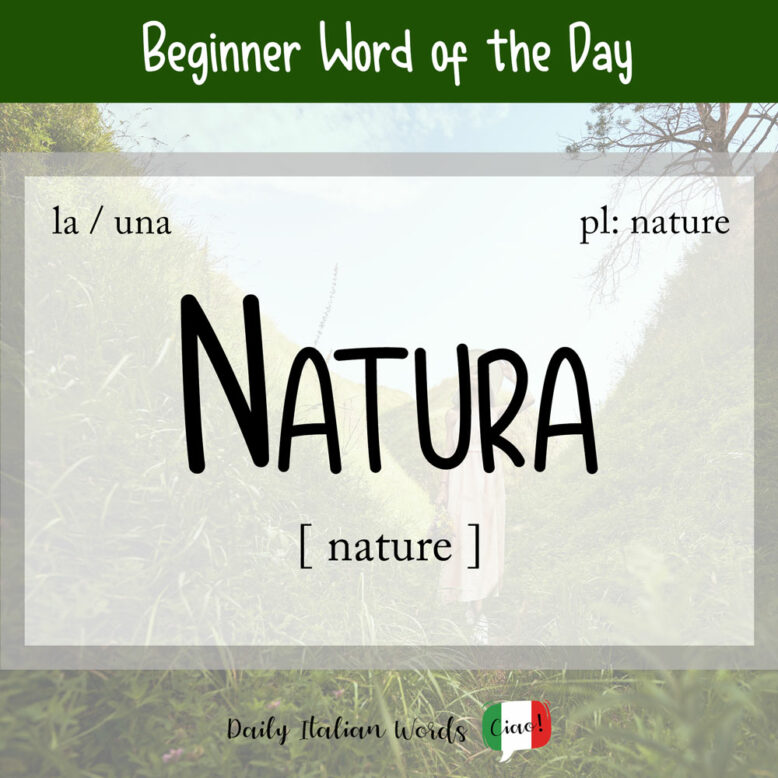The Italian word for nature is the similar sounding natura (feminine, plural: nature). It corresponds to the English meaning of the word in every sense as we’ll discover below.

The first translation is the physical world that surrounds us including plants (piante), animals (animali), the landscape (paesaggio) and any other features or products of the earth.
Noi esseri umani non esisteremmo senza la natura.
We human beings would not exist without nature.
In this sense of the word, we often talk about natural phenomena (fenomeni della natura or fenomeni naturali), the laws of nature (le leggi della natura) and, figuratively speaking, Mother Nature (madre natura) as the controlling forces affecting the world and its inhabitants.

Natura may also refer to the inherent character, features, or qualities of a person. For example, if someone you know always looks on the bright side of life, you could say that he is ottimista per natura (an optimist by nature), whereas someone with a fiery nature would be said to have una natura focosa.
Non è nella mia natura essere disonesto.
It’s not in my nature to be dishonest.

In the same way, we can talk about the nature or essence of physical things and more abstract concepts such as, for example, someone’s business affairs, an illness, relationships or problems.
Un agente segreto non può mai rivelare la vera natura del suo lavoro.
A secret agent can never reveal the true nature of his work.

The phrase seguire la propria natura (to follow one’s own nature) is used when you like to follow your own instincts.
Other expressions with the word natura include:
- contro natura = against nature, something that is considered unnatural, improper or immoral
- scherzo della natura = freak of nature (lit. joke of the nature), it refers to an unusual event, or is used as a bad joke to talk about a deformed person or animal
- pagare in natura = to pay with natural products, merchandise or other goods instead of money. It also has a sexual meaning where pagare in natura implies that a person pays someone with his or her body.
The adjective naturale can be used to describe something that relates to nature, or that follows a natural course.
È morto per cause naturali.
He died of natural causes.
Finally, natura morta (lit. dead nature) refers to a still-life painting.

Heather Broster is a graduate with honours in linguistics from the University of Western Ontario. She is an aspiring polyglot, proficient in English and Italian, as well as Japanese, Welsh, and French to varying degrees of fluency. Originally from Toronto, Heather has resided in various countries, notably Italy for a period of six years. Her primary focus lies in the fields of language acquisition, education, and bilingual instruction.


